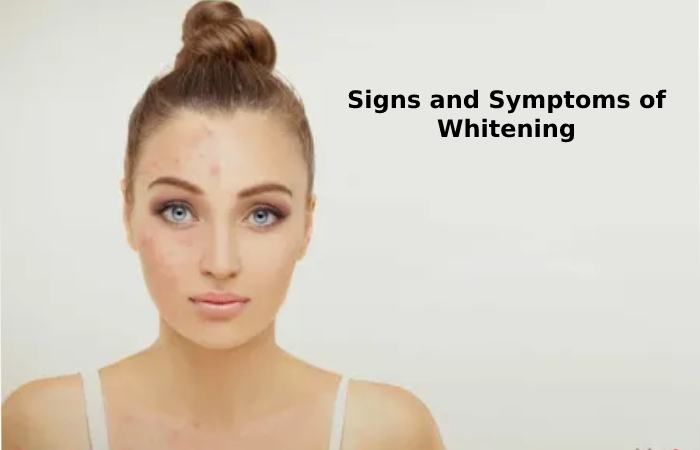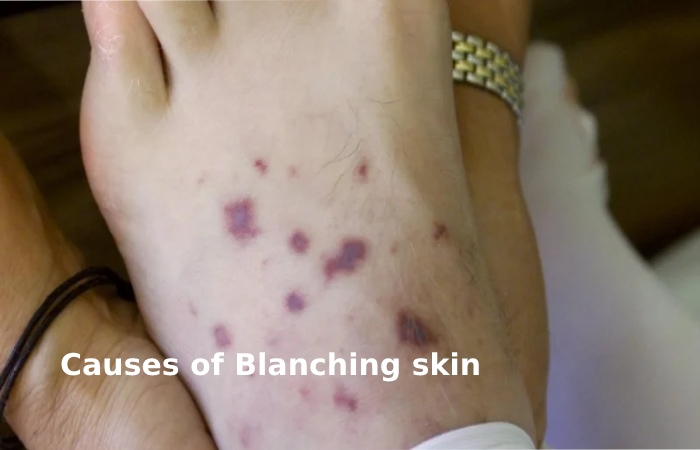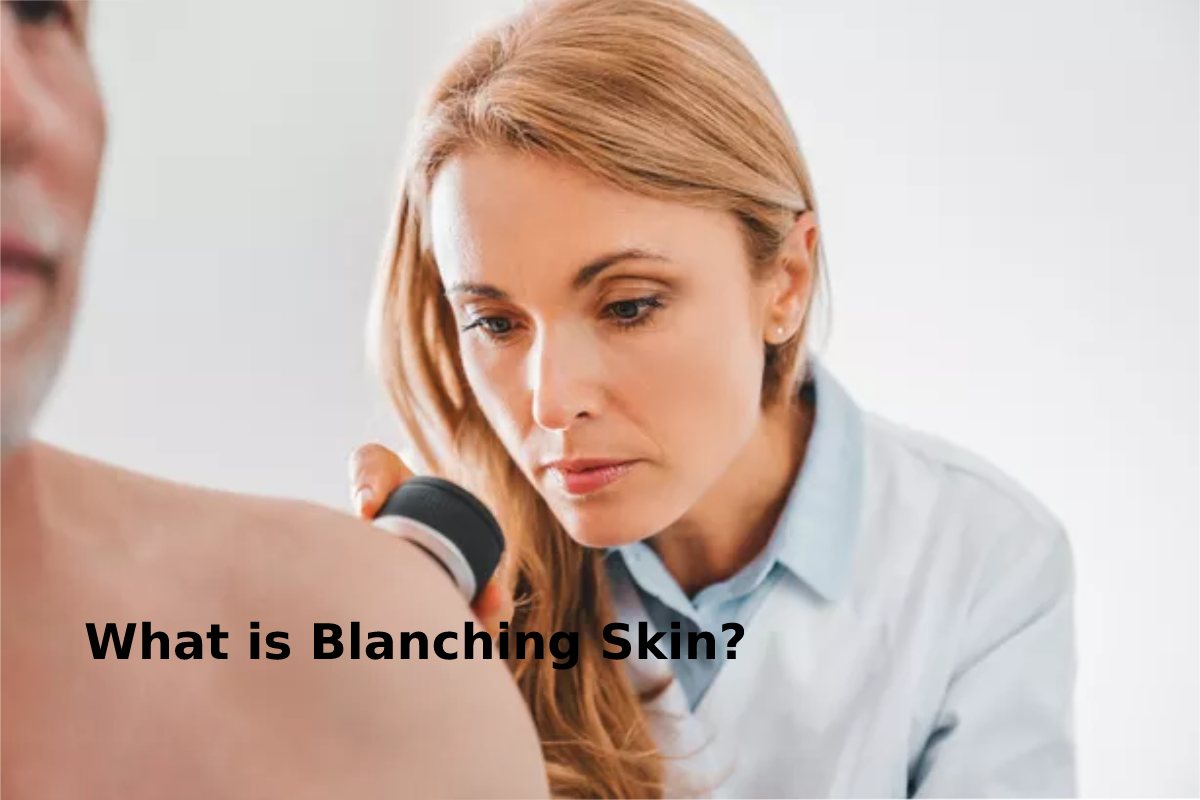Blanching Skin occurs when the whitish discoloration of the Skin lasts longer than average after pressure has been applying to an area of Skin. It happens because normal blood flow to a particular area (where whitening is being teste does not return quickly.
Bleaching is considered a physiological test, and when fingers turn white, it could be a telltale sign of a condition called Raynaud’s syndrome. But there are several other details why a person may experience paleness.
Table of Contents
Blanching Test
A whitening test can be performe without diagnostic tools. A health care provider presses the fingertips against the Skin with light pressure for a short time, then quickly withdraws them to check for bleaching.
The whitening can be tested by following a few simple steps, including:
- Press into Skin with fingertips (pick up suspicious areas, such as red, dark, or pink)
- The location should turn white when pressure is applied.
- Take the pressure off your fingers
- Within seconds (after removing the fingertip), the site should return to its original color (indicating that blood flow to that area is good).
What is Diascopy?
Transmitted light is a slightly more advanced skin lightening verification technique (compared to using a fingerstick). This method of controlling blood flow to an area of Skin involves several steps, including:
- Place a piece of clear glass (like a glass slide) or clear plastic on the Skin to get if the Skin turns white and fills correctly under pressure
- Squeeze the glass with your fingertips and see the color of the Skin under pressure
- remove fingers
- Check for lightening (note that lightening occurs when the area subjected to pressure turns whitish but does not return to its original color (like the surrounding tissue)
Signs and Symptoms of Whitening
 Signs and symptoms of bleaching are:
Signs and symptoms of bleaching are:
- The Skin appears white (or less red) when pressure is applied
- The whitish color that occurs when pressure is applied to the Skin does not return to normal within seconds of the pressure being remove.
- The Skin often feels colder than usual when blood flow is restricted.
- Severe circulatory disorders can lead to a bluish discoloration of the Skin.
- Numbness or pain in the affected area
Causes of Blanching skin

There are several reasons for bleaching, ranging from the simple to the complex, including:
Spider Veins
Minor damaged or “broken” blood vessels often appear on the surface of a person’s legs or face; Spider veins are not painful. They occur with various conditions (e.g., rosacea, liver disease, sun damaged Skin, or pregnancy).
- Skin Inflammation: It can include rashes, hives, and more
- Obstruction of Blood Movement to An Area Of Skin: Chemicals, emotionless, trauma, radiation, or chronic illness can all affect blood flow.
- Frostbite: A condition caused by exposure to cold outside temperatures is a loss of blood flow to the affected area.
- Raynaud’s Syndrome: A condition that touches about a third of people with lupus (a disease associated with skin inflammation). It involves a spasmodic narrowing of the arteries, and a subsequent loss of adequate blood flow impairs blood flow typically to the fingertips and toes.
- Beer Stains: Small, irregular, hypopigmented spots are typically found on the arms and legs.
- Livedo Reticularis: A specific type of skin discoloration consists of a purplish-red, spiderweb-like pattern forming circles, usually on the legs or arms.
How is Blanching of the Skin Diagnosed?
A doctor diagnoses Skin thinning by performing a physical exam to determine possible causes. They will examine the appearance of the Skin around the thinning area and ask for your medical history to determine any conditions contributing to the Skin’s thinning.
How is Skin Lightening Treated?
Skin lightening treatments depend on the underlying cause. For example, lifestyle changes, such as avoiding a cold, can be a treatment for Raynaud’s phenomenon. Amlodipine is an off-label antihypertensive used to treat the disease.
For Raynaud’s phenomenon, keep your Skin warm by:
- layers
- wear warm mittens or socks
- don’t stay too long in the cold
People who are bedridden for health reasons should turn over frequently to avoid bedsores due to excessive swelling. Pressure points like the buttocks, elbows, and heels are sensitive to pressure which can cause pressure sores.
Related Searches
blanching skin jaundice
blanching skin treatment
skin blanching when pressed
blanching vs non-blanching skin
what is non-blanching skin
blanching skin causes
blanching skin burn
Conclusion
Skin lightening occurs when the whitish discoloration of the Skin lasts longer than average after pressure is apply to an area of Skin. It happens because normal blood flow to a particular area (where the whitening is being teste) does not return quickly. Bleaching is consider a physiological test.

